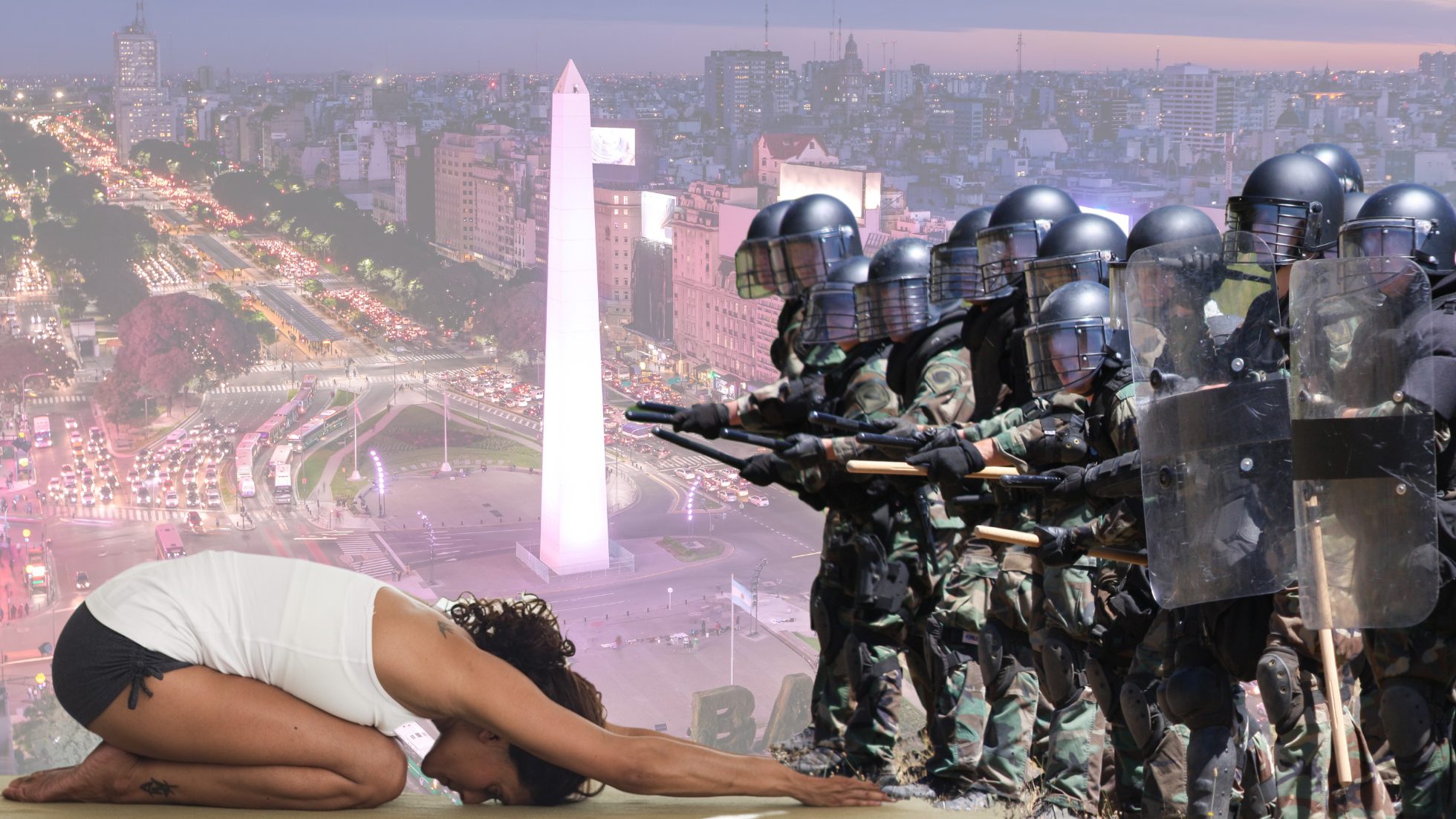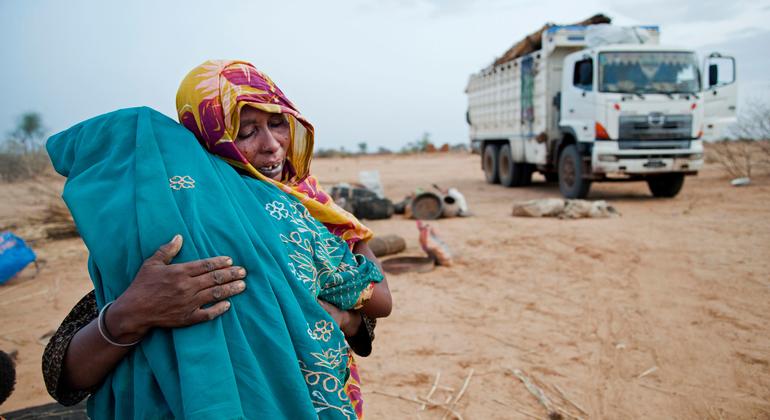Controversial accusations of criminal activities and prosecutions rejected for the second time.
A setback for the prosecutors
On 5 June last, the National Chamber of Cassation for Criminal and Correctional Matters confirmed the nullity of the elevation to trial of the defendants in the case known as the “Buenos Aires Yoga School” (BAYS), accused of “criminal activities.” The decision of the Cassation Court is not the end of the case as it is returned to the judge of first instance but it is clearly a setback for the prosecutors who were twice clearly disavowed.
In August 2022, about 50 spectacular police raids, “mysteriously” leaked to the media, were simultaneously conducted against members of the yoga school on the sole basis of unfounded accusations by one single person, Pablo Salum, that the Office of the Prosecutor for Human Trafficking and Exploitation (PROTEX) instrumentalized to support its controversial concepts of victims of trafficking and abuse of vulnerability. After that, hundreds of media outlets in Argentina and abroad had presented the yoga group headed by Juan Percowicz, now 86, as a “horror cult.”
Salum is a bizarre and megalomaniac anti-cult individual, who sees cults everywhere, even regarding the Catholic Carmelite Order. He publicly said on social media and YouTube that he had lodged a complaint against BAYS. He also inspired PROTEX massive raids against 38 centers of the Evangelical humanitarian organization REMAR, a respected NGO specialized in the rehabilitation of drug addicts and (paradoxically) women victims of real trafficking.
The key facts
In September 2022, judge Ariel Lijo tried to prosecute nineteen BAYS members, including Juan Percowicz, for crimes of illegal association, human trafficking for sexual exploitation and money laundering, following a request made by federal prosecutor Carlos Stornelli and his colleagues from the PROTEX, Alejandra Mangano and Marcelo Colombo.
From the beginning of the case, all the alleged victims denied the accusations and denounced that they were being stigmatized as “brainwashed prostitutes” when they had never prostituted themselves, and have never been forced into anything by BAYS. To dispel any doubts, they asked to be examined by forensic experts to confirm their statements.
After that, on November 2022, the Federal Chamber of Appeal ruled the lack of merit of two defendants and, although confirming the prosecutions of the remaining, ruled that scientific psychological and psychiatric examinations be carried out on all the alleged victims in order to investigate whether there are any signs that their wills were unduly influenced or coerced.
On 4 July 2023, without addressing the results of those examinations –which with no exception determined total lack of any characteristics of submission, emotional dependence, lability, manipulation, or the assumption of a merely passive role in the interpersonal relationships of the alleged victims– Judge Ariel Lijo and prosecutors Carlos Stornelli, Marcelo Colombo and Alejandra Mángano tried to elevate the case to trial. However, on 7 December of the same year, the National Court of Appeals for Criminal and Correctional Matters, composed of judges Martin Irurzun, Roberto Boico and Eduardo Farah, annulled that order and commanded Judge Lijo to review that forensic results and to let the defense intervene in the evaluation. This is the decision confirmed by the National Chamber of Cassation.
The fabrication of “victims” of trafficking and the “rescue industry”
Until 2012, trafficking in persons for sexual exploitation was punishable by Law 26.364 on Prevention and Punishment of Human Traficking and Assistance to Victims but on 19 December 2012, this law was amended in such a way that it opened the door to controversial interpretation and implementation. It is now identified as Law 26.842.
In this context, cases of alleged human trafficking linked to spiritual minorities have emerged in Argentina along with the use of anti-cult language in the narratives of anti-trafficking agents in the media, legal and judicial settings. In this regard, decried and obsolete concepts such as “cults”, “brainwashing”, “coercive organization” and “coercive persuasion” are coming back to the front stage and are getting a new life. So, when presumed victims of trafficking deny they are victims, anti-trafficking operators now disqualify their statements because in their eyes, they do not perceive themselves as such as their adhesion to an “ideological or spiritual system” prevents them from recognizing their exploitative situation.
This creates a “victimization paradigm” and leads to a vicious circle according to which they are vulnerable per se and, therefore, victims, who are denied the capacity and the right to intervene in the narrative of events. Their only status is “to be rescued”.
Scholars understand this phenomenon as a “rescue industry” that allows anti-trafficking agencies to generate a large number of cases in order to increase their public visibility and authority. This also makes possible to consider a wide range of legal activities –such as volunteering and donation– as “trafficking.”
Controversies inside and outside the courts
Judge Lijo and PROTEX resolutions raised numerous criticisms in the Chamber of Appeal. Judge Farah has reiterated in his last vote that the alleged victims must be heard, and that not doing so means an act of paternalism alien to the due behavior of a democratic justice sensitive to gender equality. In his opinion, after listening to the personal testimonies of these women, it is clear that none of them is a victim of human trafficking, which is confirmed by the results of the forensic examinations. In Farah’s opinion, the defendants should be acquitted.
Judges Irurzun and Boico consider that these expert opinions are essential to evaluate a change in the procedural status of the defendants. Ultimately, it was the Chamber of Appeal itself that requested their performance and now urges Judge Lijo to evaluate them. Failure to do so is contrary to the right to legitimate defense.
But not only the court has spoken. Numerous researchers, after interviewing BAYS members and studying the legal documents, have questioned the anti-cultist arguments of PROTEX and Judge Lijo. These research results were published in scientific journals and conferences –such as the one held in Bordeaux between June 12 and 16, 2024, by the Center for the Study of New Religions (CESNUR)– as well as at the 53rd session of the United Nations Human Rights Council.
The message is clear: denying the credibility of clinically healthy adult women through pseudoscientific arguments is a direct attack on individual liberties protected by the Universal Declaration of Human Rights and the Argentine Constitution.





